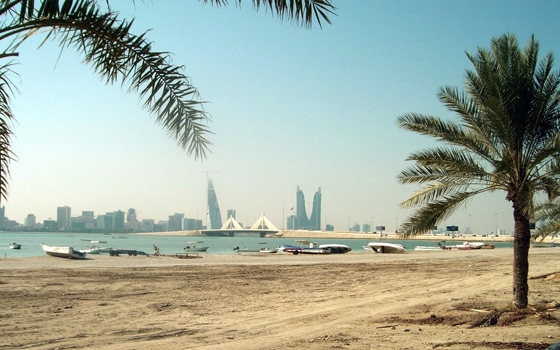Bahrain continues to be the freest economy in the Middle East and North Africa region, according to the 2015 Index of Economic Freedom, released by the Heritage Foundation and the Wall Street Journal.
With an overall score of 73.4, the kingdom ranks 18th in the global index of 178 countries.
Bahrain is well ahead of its fellow GCC states, with the UAE (economic freedom score of 72.4) at 25th spot being the second highest regional economy.
While the kingdom's global ranking has slipped from 13th last year, it remains the regional leader by a wide margin.
Among other GCC countries, Qatar ranked 32nd with a score of 70.8; Oman followed at 56, scoring 66.7; Kuwait was placed 74th with a score of 62.5; and Saudi Arabia ranked the lowest at 77, scoring 62.1.
The report authors Terry Miller and Anthony B Kim said the fundamental relationship between economic freedom and prosperity is readily apparent worldwide.
'No matter the region, per capita income levels are consistently higher in countries that are economically freer.'
According to them, the Mena region, however, faces structural and institutional problems, and private-sector growth continues to lag far behind levels needed to provide adequate jobs for growing populations.
Taken as a whole, the Mena region's lack of job opportunities continues to be a serious problem, particularly for younger members of the labor force whose average unemployment rate is close to 25 per cent.
'Existing policies and practices continue to restrict economic freedom,' they added.
Over the past year, business freedom has declined in 11 of the 18 countries in the region.
Equally troublesome is that costly subsidies on energy and food, which place a considerable burden on budgets and stand in the way of sound sustainable economic development, are still on the rise, the report said.
Of the 178 economies graded in the 2015 Index, only five have sustained very high freedom scores of 80 or more, putting them in the ranks of the economically 'free.'
The next 30 countries have been rated as 'mostly free' economies recording scores between 70 and 80.
With scores of 60 to 70, 55 countries have earned scores that place them in the 'moderately free' category.
Thus, a total of 90 economies, or about 50pc of all nations and territories graded in the 2015 Index, provide institutional environments in which individuals and private enterprises benefit from at least a moderate degree of economic freedom in the pursuit of greater prosperity and success.
Globally, the index was led by Hong Kong, with a score of 89.6, followed by Singapore, New Zealand, Australia and Switzerland.
The countries with the least economic freedom were North Korea, Cuba, Venezuela, Zimbabwe and Eritrea.
Syria, Afghanistan, Libya and Sudan were not ranked.
Gulf Daily News
3 February

























































